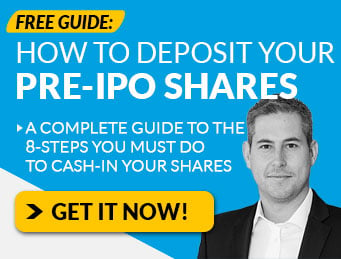The Generational Wealth Code Survey
One of the things I’ve long appreciated about reading research reports from big consulting firms is this…
They are always looking for ways to keep their finger on the pulse of what is REALLY going on, by simply talking to their market.
And as much fun as I’ve been having writing about wealth building topics (or recent news stories) that personally interest me…
At the end of the day, I’ve always wanted to have a bigger impact on our readers’ lives beyond writing “fun and entertaining” newsletters.
And in my experience, if the goal is to achieve some version of financial freedom, financial independence, or retirement – which I broadly refer to as Generational Wealth…
You need more than getting lucky on some lottery ticket-style investment opportunity.
You need some sort of wealth building strategy that you feel comfortable using over a medium-to-long term period of time.

Inevitably, this requires some sort of financial planning – which is the process of determining whether and how an individual can meet life goals through the proper management of financial resources.
And as we’ve discussed in other articles about building your Family Bank and investing the way Family Offices do…
There’s a LOT to consider when it comes to building – and keeping – your wealth.

And even though I’m a big believer in hiring the right team of professionals to help you with these things…
I’m also a big believer that you should know what you’re hiring an expensive professional service provider to do, before just blindly trusting them.
That’s why I’ve been putting in extra hours to learn more about how professional financial planners do what they do…
And as far as I can tell, the single most important wealth building strategy is to simply have a clear goal and a written plan for achieving that goal.
- Maybe that goal is to accumulate a certain net worth.
- Maybe it’s to increase the amount of income you earn each year.
- Maybe it’s to spend more time with friends and family and have more fun.
- Maybe it’s to save up so you can make a large purchase that brings you joy in life.
Whatever your goals are, chances are, it’s going to require some sort of financial commitment (or tradeoff) to make it happen.
You don’t need to tell me exactly WHY you want more money…
But chances are, you’re going to need wealth building strategies that fall into one of three categories.
Even though most people want to STOP trading their time for money, for the vast majority of people, the income they earn from wages is the single most important source of savings.
This means one of the most effective ways to quickly build wealth is to simply earn more income for the hours you are trading.
For active investors, there are plenty of ways you can generate market-beating returns on your invested capital.
- Maybe you invest some money into your education, and that helps you negotiate a raise at work.
- Maybe you learn how to improve your sales skills, and earn more commissions.
- Maybe you develop leadership skills that allow you to build a team, and then grow your business.
- Or maybe you decide to do the whole “buy a small business” or “buy rental properties” thing, and manage a portfolio of cash flowing assets.
But it’s not enough to simply earn more income, if you aren’t also increasing your savings rate.
That’s why we also need to have a good understanding of how to not only REDUCE the taxes we pay on that actively earned income, with deductions and credits (hence the term Active Profits)…
We also want to figure out how we can shift that income into lower tax brackets – for example, shifting income to other family members – or even recategorizing it as passive income, instead of active.
#2) Passive Profit Strategies –
It shouldn’t come as any surprise that many people are interested in learning how to invest their money so their money makes them more money.
But most people confuse true “set it and forget it passive income, where you do nothing and get paid,” with “things that require real work but are taxed as passive income.”
For example, if you own a portfolio of profitable businesses or real estate… you might do real work managing that portfolio, but your income is categorized as “passive income” by the letter of the law.
Or maybe you’re doing some sort of hard money lending, where there is some amount of work to originate borrowers… but lending money is a whole lot less work than running a business.
But just like the discussion on active income, if you want that passive income to turn into passive profits…
You’ll want to understand the ins and outs of how BANKERS play this game, and take advantage of all the legal loopholes and tax deductions that make these strategies so desirable.
But why would you want to develop these banker level skills?
That brings us to…
#3) Generational Wealth Strategies –
If your eventual goal is to build the kind of generational wealth that allows you to take care of all the people you love…
And spend more time with those people doing things you enjoy…
That means you are officially the Steward of your family’s wealth, and will have to be responsible for the management – and transferring – of that wealth to other people.
This is where things like retirement planning, estate planning, wills and trusts, asset protection, and charitable giving come into play…
As well as how to use advanced wealth building strategies like “Buy, Borrow Die,” “Medicaid Trusts,” and the “Mega IRA.”
One of the reasons I like to spend a lot of time talking about these generational wealth strategies is because I’m a big believer in the whole “begin with the end in mind.”
And the more clarity you have around the types of generational wealth strategies you want to implement, the easier it becomes to build wealth in a way that can take advantage of those strategies when you get there.
Broadly speaking, these are the three investor education topics I’d like to spend more time writing about on the Weekday edition…
And if these are topics you’re interested in, it would be super helpful if you could answer this short survey, so I can get an even better idea of who our readers are…
What types of topics you’d like to learn more about…
And any color commentary about what’s going on in your life, especially regarding WHY you’re looking to build wealth.
While I can’t legally provide any individualized advice, what I can do is write something “in general” about common things happening in people’s real lives that are causing them financial stress.
Thanks again for being one of our valued readers!





